Search Results
Showing results 1 to 17 of 17
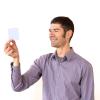
Blind Spot
Source Institutions
In this activity, learners conduct a simple test to find their blind spot.
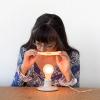
Pinhole Magnifier
Source Institutions
In this activity related to light and perception, learners use a pinhole in an index card as a magnifying glass to help their eye focus on a nearby object.
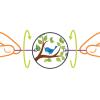
Thaumatropes
Source Institutions
In this activity, learners will make a thaumatrope, an old-fashioned optical illusion that dates back to the 1820s.

Seeing Your Blind Spot
Source Institutions
This activity (aka "snack") provides instructions for discovering your blind spot. It is an exploration of light and visual perception using simple materials you may have around the house.
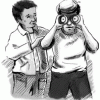
Seeing Is Believing
Source Institutions
This activity is designed to accompany the PBS documentary about African-American chemist "Percy Julian: Forgotten Genius." Learners look through two cups with small holes in them to simulate what it'
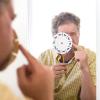
Whirling Watcher: Make a Stroboscope
Source Institutions
In this activity, learners make a stroboscope--a spinning disk with slits around the edge that you look through.
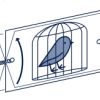
Motion Picture
Source Institutions
During this hands-on activity, learners are briefly exposed to moviemaking and animation, when they create their own thaumatropes.
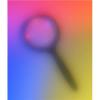
Color Spy
Source Institutions
In this activity (16th on the page), learners play a variation of the "I Spy" game to explore color. Learners work in teams with each team assigned a color.
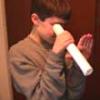
X-Ray Vision?
Source Institutions
In this activity (13th on the page), learners complete a simple illusion trick to see through their own hand.
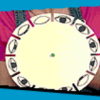
Phenakistascope
Source Institutions
In this optics activity, learners build an animation tool to make mini movies. When you spin a phenakistascope, the pictures move so quickly that your eyes and brain can't separate the images.

Peripheral Vision
Source Institutions
In this optics activity, learners conduct an experiment to explore peripheral vision. Learners collect data about their ability to see shapes, colors, or letters using their peripheral vision.
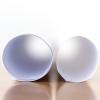
Lateral Inhibition
Source Institutions
Which one of your eyes are dominant? Do they act independently or are they equally "in control?" This activity explores how your eyes work (or don't work) together.
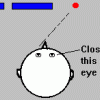
The Blind Spot
Source Institutions
In this activity (1st on the page), learners find their blind spot--the area on the retina without receptors that respond to light.
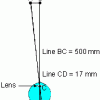
Measuring Your Blind Spot
Source Institutions
In this activity, learners calculate the width (horizontal diameter) of the blind spot on their retina. Learners make a blind spot tester using a piece of notebook paper.
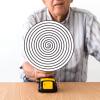
Depth Spinner
Source Institutions
Experience a spinning spiral...you won't be hypnotized, but you'll see what happens when you look away. It's like getting off a merry-go-round and everything keeps moving.
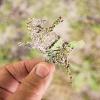
Disappearing Act
Source Institutions
Make a camouflage cut-out animal! Using patterned paper or magazine pictures from around the house, use your craft skills to make a paper animal that blends into its background.
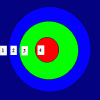
Drop IT!: Depth Perception
Source Institutions
These two activities (4th on the page) demonstrate the importance of two eyes in judging depth.
